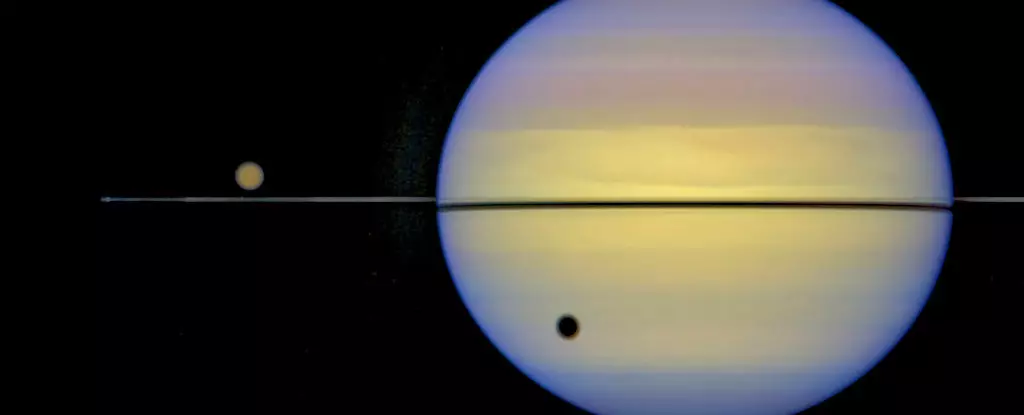Hopes of discovering extraterrestrial life within our own Solar System have been dampened by a recent study that suggests Saturn’s largest moon, Titan, may be barren. The scientific community’s excitement about finding life in the icy worlds of the outer Solar System has been met with a realization that it may be less likely than previously assumed. The idea that Titan, with its continuous liquid water trapped below a thick icy crust, could harbor some form of biochemistry, has been shattered by the findings of astrobiologist Catherine Neish and her team.
Life on Earth requires more than just water to exist; it also needs a combination of other essential elements, particularly carbon. While Titan boasts an abundance of organic molecules in its methane-rich atmosphere, the flow of these molecules into the subterranean oceans – where life could potentially arise – is a challenge. Impact craters on Titan’s surface, serving as a potential driving force, were the focus of Neish and her team’s estimations. However, the rate of comet strikes and subsequent transfer of organic molecules into the moon’s ocean was found to be insufficient to sustain life.
The calculations indicate that Titan remains barren due to the lack of a free-flowing carbon cycle. The difficulty in transferring carbon from Titan’s surface to its subsurface ocean poses a significant obstacle in creating conditions conducive to life. Despite the organic-rich atmosphere, Titan’s inability to support a large biosphere raises doubts about the potential for finding life on Saturn’s largest moon.
While the disappointment of Titan’s barren landscape may be disheartening, the value of studying this enigmatic moon should not be understated. Titan’s surface composition provides a unique laboratory for organic chemistry, offering insights into the Universe and ourselves. The need to land on Titan and sample its surface to determine its composition has prompted NASA’s Dragonfly project, set to deploy a drone on the moon’s surface in 2028. The ability to search for prebiotic reactions and learn more about the origins of life on different planets makes Titan a valuable asset in our quest for understanding the mysteries of the cosmos.
Overall, the findings regarding Titan’s potential for hosting extraterrestrial life serve as a sobering reminder of the challenges inherent in the search for life beyond our own planet. While the allure of discovering life elsewhere in the Solar System remains strong, the complexity of the factors required to sustain life underscores the need for caution and careful consideration in our exploration efforts. Titan’s barren landscape may not provide the answers we seek, but it offers valuable insights into the complexities of astrobiology and the vast diversity of environments in our cosmic neighborhood.


Leave a Reply